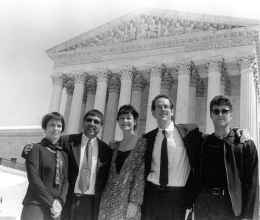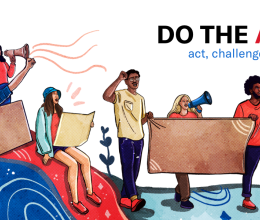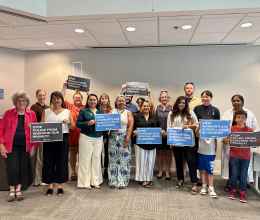
Are you confident in asserting your rights when dealing with police? Do you know when an officer has the right to search you? Are you prepared to respond to an officer’s questions with a respectful “I choose to remain silent”?
Many of us do not have the knowledge and confidence to stand up for our basic rights during an encounter with law enforcement. Knowing these rights and how to assert them should be a part of our basic education but, sadly, it is not. So the ACLU of Oregon has launched a campaign to train people on their basic rights when dealing with law enforcement.
Our goal is to educate and empower Oregonians to stand up for their rights by arming them with the knowledge and training to do so effectively and respectfully.
Our goal is to educate and empower Oregonians to stand up for their rights by arming them with the knowledge and training to do so effectively and respectfully. This campaign addresses one piece of ACLU of Oregon’s strategic goal to reduce use of force and curtail racial profiling.
The ACLU of Oregon Know Your Rights When Encountering Law Enforcement workshops will provide basic knowledge about street-level police interactions including when you have the right to refuse to speak with police, how to refuse a search, and how to respond if you feel your rights have been violated.
These workshops will not only empower those who attend but will also help our law enforcement officers do their jobs better. While we would hope that officers always act within constitutional guidelines, the fact is many officers will take advantage of those who are ignorant of their rights, often through subtle, not overt, means. For example, rather than asking explicitly “Do I have permission to search your bag?” an officer might say “Let me look in your bag” while reaching for a young man’s backpack. In this scenario, having the confidence to say “I do not consent to a search, Officer” puts the officer on notice that this person understands their rights and will often result in the officer changing their entire approach to the person during the encounter.
If you would like to request a Know Your Rights workshop for your classroom, community group or other venue, please fill out the request form.






